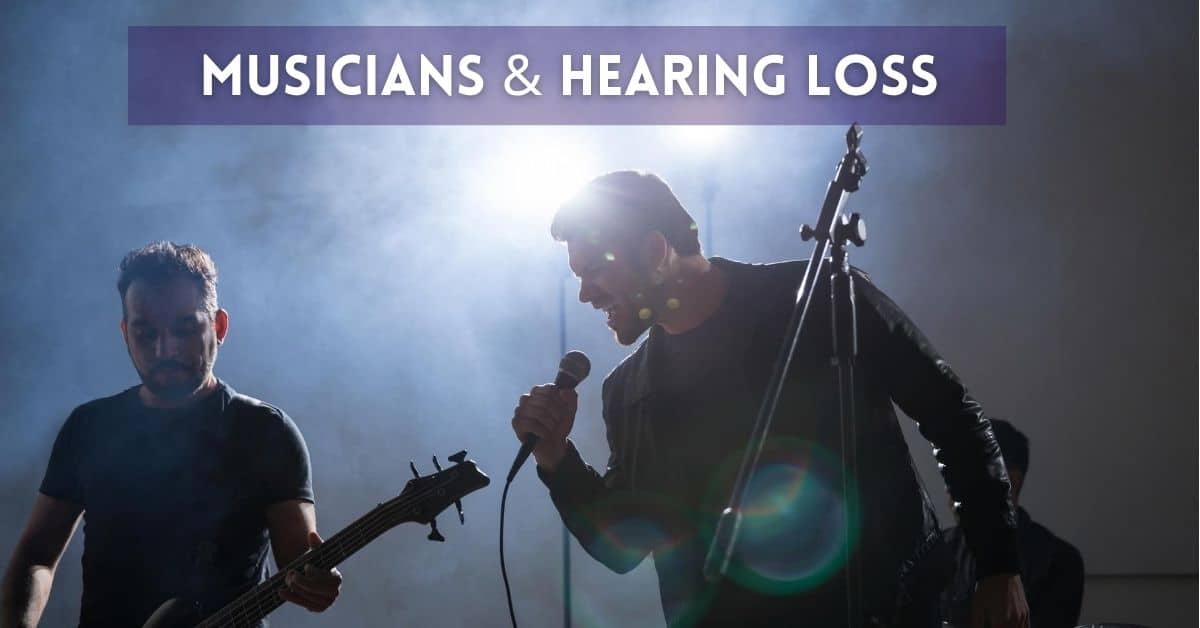
Many occupations have a risk of hearing loss, and our minds go immediately to industrial and manufacturing jobs with very loud machinery that can damage hearing through exposure day in and day out. Other occupations, such as those in the military or working with aircraft require expert hearing protection to avoid hearing loss over a lifetime of work.
However, noise risks in workplaces are not limited to these technical occupations. In addition to those who work in loud restaurants and bars, anyone working in the music industry has a higher risk of hearing loss.
Simply attending loud concerts comes with a risk, but musicians who practice long hours on their instruments can be exposed to similar risks. Indeed, the list of musicians with hearing loss is long and ever-growing. Many heroes of rock, rap, and dance music have lost hearing ability due to exposure to very loud music in production and performance.
Some of the conditions putting a musician at a risk of hearing loss might surprise you, including performers of classical and jazz. After considering these hearing risks, let’s shift the perspective to what can be done to prevent hearing loss.
The Risks of Hearing Loss for Musicians
Of course those who perform and rehearse loud music have a professional risk of hearing loss, but musicians in relatively quieter genres can have a risk, as well. Even practicing an acoustic instrument such as the flute or viola can be risky when it happens for hours every day in such close proximity to one’s ears.
Classical musicians have had higher rates of hearing loss, such as the accomplished violist Betty Hauck whose career was curtailed by hearing loss. After having performed with the likes of Yo-Yo Ma, Hauck found herself gradually losing the ability to hear other musicians in her ensembles. When she realized this limitation, she decided to give up her music career rather than put her fellow musicians in the awkward position of having to talk to her about hearing loss.
Whether electric guitar, drums, or a quieter instrument, these instrumentalists expose themselves to a decibel level that is damaging after extended exposure. Those who are engaged in music production are similarly at risk, such as recording engineers or producers. Long hours listening back to mixes, whether through headphones or monitors, can add up to a noise threshold that results in hearing damage over time.
Ways for Musicians to Protect Their Hearing
One of the difficulties that musicians face when it comes to hearing protection is the need to be able to hear clearly while playing in an ensemble. Just as Betty Hauck reported, hearing loss can be the greatest problem when it comes to responding to others’ performances in collaboration, yet hearing protection can have the same muffling effect.
One of the solutions that many musicians have found is to wear custom-fitted hearing protection that is designed specifically to cut the most damaging frequencies while maintaining the other ranges at close to full volume. Simply cutting the sound of music by 5-10 decibels is better than no hearing protection at all, and these customized earplugs can cut high frequencies more drastically than those in the midrange.
Others find it useful to use a practice mute on an acoustic instrument, while those involved in production prioritize extended sessions with low volumes and only use high volumes for checking mixes at a later stage. Taking regular “listening breaks” are useful not only for the quality of the music but also for your hearing ability.
Healthy Hearing for Musicians
The good news is that for musicians with hearing loss, treatment options are available. Hearing aids can bring back hearing ability in the ranges that are essential for performing music, making it possible for many who have hearing loss to return to their passion and career.
If you are interested in hearing assistance, the first step is to contact us for a hearing test. Once the results are in, you will be presented with a range of assistance options, and you might be surprised at the features that are available to suit your lifestyle, including the music that was once such a vital part of your life.
